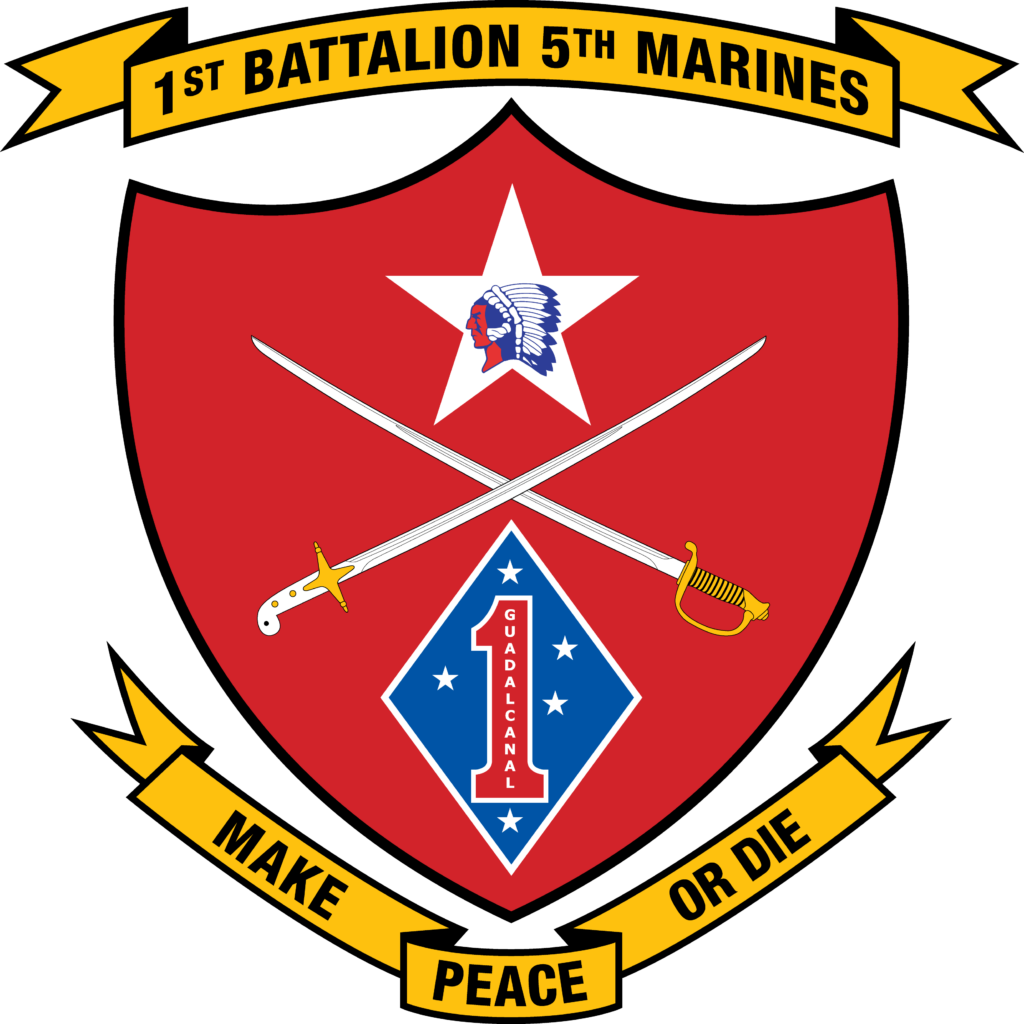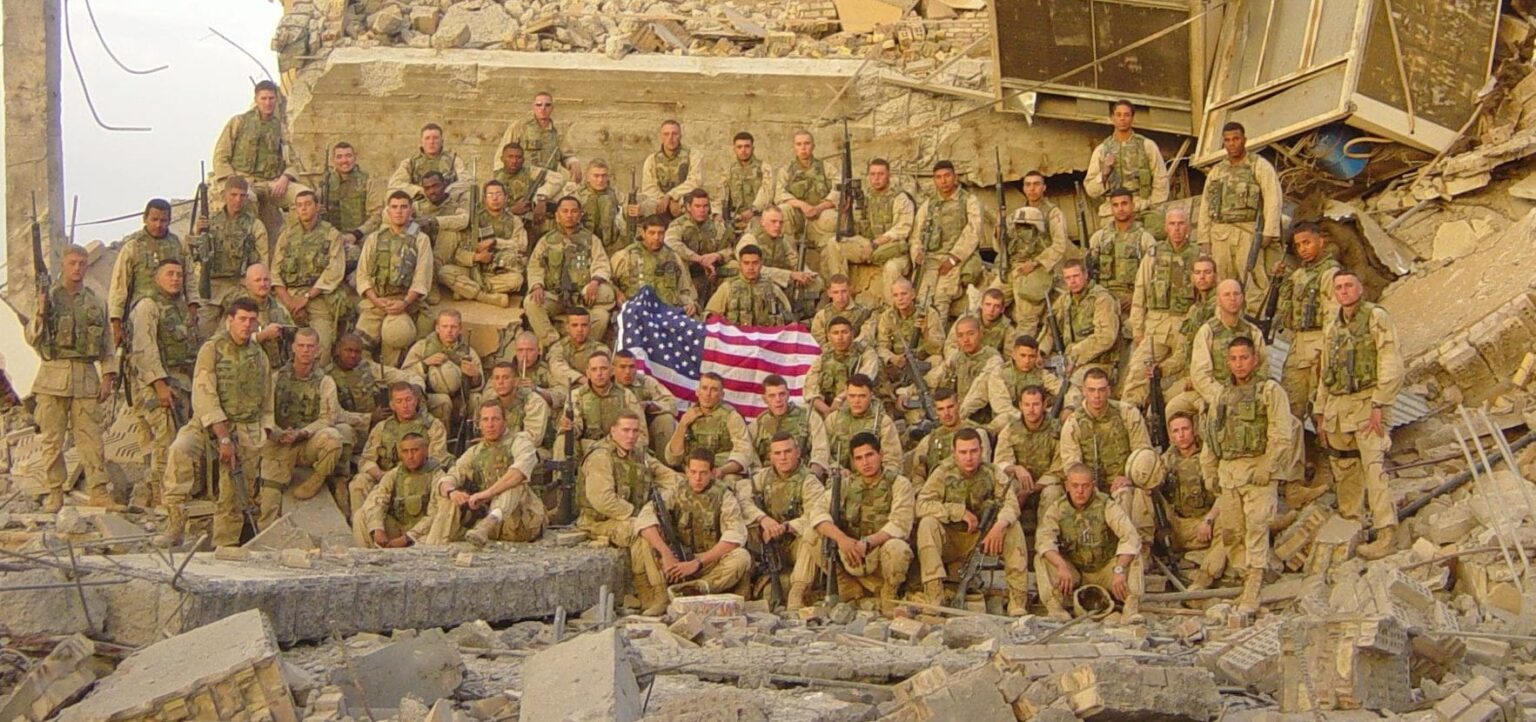 On April 10,2003 I, along with the rest of First Battalion Fifth Marines, rolled into northern Baghdad securing Saddam Hussein’s presidential palace located on the banks of the Tigris River. One of the possessions that I value the most in this life is a picture of my platoon taken just days after the palace was secured. I have always been proud that I brought every one of those Marines home. I left the Marine Corps a few months later thankful to have served but with no sense of a continued obligation to aid those whom I had once promised to care.
On April 10,2003 I, along with the rest of First Battalion Fifth Marines, rolled into northern Baghdad securing Saddam Hussein’s presidential palace located on the banks of the Tigris River. One of the possessions that I value the most in this life is a picture of my platoon taken just days after the palace was secured. I have always been proud that I brought every one of those Marines home. I left the Marine Corps a few months later thankful to have served but with no sense of a continued obligation to aid those whom I had once promised to care.
Nearly ten years later I was invited to spend a week with several of these Marines at an event held in the Mountains of Colorado. It was during this week that both my understanding of the difficulties facing many veterans, as well as my own reasonability to them, began to change. I heard stories of young men with whom I had served being killed in later combat operations. Others who had struggled and often failed to build lives and hold relationships together as they faced military reintegration to civilian life. Warriors who came home physically whole but spiritually and emotionally broken from combat trauma. Some of these men, I would learn during that week, had decided that the only way to deal with life was to take their own.
After our time together I started looking at the platoon picture hanging in my office very differently. While I was once proud that I took care of “my” Marines, I now see in that picture the faces of men who I effectively walked away from. I had believed that my responsibility to them ended the same day as my time in the Marine Corps. It was a sincere belief, but it took understanding the “other side” of combat for me to realize that the responsibility of veterans to one another never ends. There are many in America who are thankful for those who have served and support the veterans cause and raise military PTSD awareness. As helpful as many of these things can be, it is only when veterans reach out to others who have served that true PTSD healing and re-engagement in life will happen.
Each person who has served must work to not only stop the veteran suicide pandemic, but to move beyond suicide and find the healing and wholeness necessary to live productive and fulfilling lives. We need to be the ones that offer hope and direction to those who are hurting; reaching back to pick up a fallen brother just as we would have in combat. If we work together, each using his skills, connections and opportunities, we will see veteran’s take their place in society as leaders of homes and leaders of businesses and leaders of communities. We were trained to be warriors who lead in the most difficult of circumstances. It is time to lead in this most difficult circumstance that we call life! As veterans, we should accept nothing less.
This is what makes the victimization of those who have served so troubling. Across our country veterans are being treated as broken goods who should be feared. Legislation is being written to protect society from its warrior class while many Americans view those who have served in any capacity as people who will spend the rest of their lives struggling to simply get out of bed in the morning. This is troubling because this caricature of the service member is often propagated by those who have served! An industry has grown up around “awareness”. We have deluded ourselves into believing that awareness without a solution is going to solve the problem. Awareness has value only when attached to a solution. We talk about the problem so much and have made society so “aware” that the only assumption a normal person could make is that all veterans are broken! We have even moved to the place that we seemingly romanticize the idea of the struggling veteran. There are VA programs raising money to “honor” those who have taken their lives after dealing with combat trauma. As tragic as veteran suicide is, it is not something to be honored, memorialized or expected of those who have deployed to combat. There is no shame in feeling suicidal if it leads to reaching out for help, but there is no honor in taking one’s life.
We need to stop believing and propagating the myth that life after the military is a life destined to fail. As veterans we need to stop accepting this perception and living as though we are somehow broken. The trauma caused by combat is real. The struggles that come along with that trauma are also real. These struggles are not, however, an excuse to give up on our families, our future or our lives! We must make a decision to move forward never allowing our experience to keep us from being the warriors that we once were. The path ahead may not be easy, but together we can find success.
Society will not change the way that it looks at veterans until we, the men and women who have served change the way that we look at veterans. Let’s decide to stop talking about the problem and raising awareness and instead commit to pick each other up, push each other forward and take our rightful place as the leaders of the country we have given so much to defend. There is a solution and the solution begins with us.
-Jeremy Stalnecker, Executive Director-Mighty Oaks Foundation






